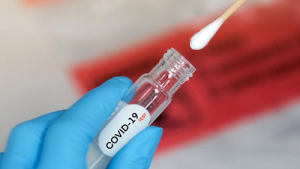Here is the major reason women are experiencing more side effects to COVID vaccine than men
Studies show men and women react differently to COVID-19, but health officials say they react differently to the vaccine too, and it may be contributing to some of the vaccine hesitancy out there, experts say.
Dr. Maryrose Laguio-Vila is the chief of the Infectious Disease Unit at Rochester Regional Health. She says data shows men generally tend to have more severe cases of COVID-19, more end up in the ICU.
“Mens’ immune systems aren’t as robust as women’s, so men have higher risks for COVID, so there’s a higher mortality rate with men,” she was quoted to have said by WIVB.
But the key term here is immune system.

Women have stronger ones – and that’s going to play a role in how they react to vaccines, too. She says studies have shown in vaccines for influenza and hepatitis, women generally have higher immune responses.
“It’s because of the impact of the X chromosome. Women have two X chromosomes, and men have an X and a Y, and on the X chromosome there are a lot of immune function genes that are present,” she says.
As a result of this, she says women have higher antibody levels and immune cells. This contributes to some women experiencing more extreme side effects to the COVID-19 vaccine like headache, or higher fevers.
Another feature that contributes to the difference we’re seeing in genders, is the influence of sex hormones. “Estrogen and progesterone stimulate the immune system differently than testosterone,” she says.
Some women may be noticing these side effects more present in others, and it could be contributing to the vaccine hesitancy health officials have been speaking about for weeks.
That’s why Dr. Laguio-Vila says it’s important women understand what the vaccine is actually doing in your body to help fight disease.
“When someone has natural infection, your symptoms are a part of the immune system stimulated to react against it … when we get a vaccine it is mimicking that exposure.”
Some fear the six blood clot events occurring in women who took the Johnson & Johnson vaccine.
Dr. Laguio-Vila says while the risk is always there – it’s one in ten million. And women should know that doctors all across the globe are surveilling this data closely.
“I think the increased surveillance akin with high number of people getting vaccine raises awareness for extremely rare, rare, outcomes,” she says.
Age is another impact too, says Dr. Laguio-Vila. The younger you are, the healthier your immune system, and the stronger the side effects could be.
“The immune system ages over time like other organs, so younger women have more robust responses compared to older. Younger ages in general have more robust reactions compared to older,” she said.
Dr. Laguio-Vila says she’s heard of some women expressing concerns or hearing stories of menstrual cycles being affected by the vaccine.
“I’ve seen some of that said, I will say I don’t think it makes physiological sense, because the immune system that’s stimulated by the vaccine doesn’t really interfere with the estrogen progesterone cycles of periods. I don’t think we know yet if there is any association or validity to those claims,” she said.





